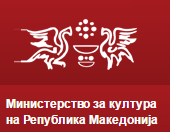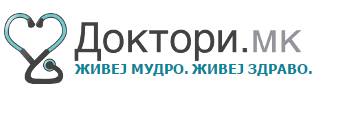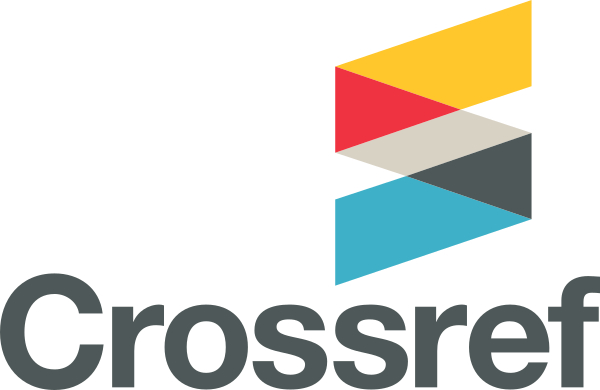|
Една основна поделба на научните истражувања е поделбата на фундаментални и применети истражувања. Во оваа поделба постојат заеднички елементи со поделбата на истражувањата на теоретски и емпириски. Разликата е во тоа што во првата поделба (фундаментални-применети) критериумот е предметот на истражување, а во втората е начинот на кој доаѓаме до податоците. Фундаменталните истражувања може да бидат чисто теоретски или теоретско-емпириски истражувања.
Фундаменталните истражувања имаат за цел да ја унапредат научната теорија, да го збогатат научното знаење за законитостите и односите меѓу појавите. Тие ги проучуваат фундаменталните, суштинските, основните теориските прашања на една наука. На пример, предметот и задачите на дефектологијата, односот на дефектологијата и другите науки, епистемолошките, терминолошките и семантичките прашања и други фундаментални проблеми од дефектологијата. Во овие истражувања доминира методот на теоретска анализа, како и историскиот и компаративниот метод. Тие се базирани главно на дедуктивно или дедуктивно-индуктивно заклучување.
Применетите или некои ги нарекуваат оперативни истражувања (applied research) се насочени кон решавање на практични проблеми од дефектологијата, со нив се применуваат, испитуваат, проверуваат резултати, решенија на некој специфичен проблем, на пример, влијанието на некоја нова законска регулатива, ефикасноста на новите казни во намалувањето на бројот на криминални дејствија, ефектите на некој лек или вакцина, ефектите од одредена образовна програма итн. Овие истражувања овозможуваат развој на нови методи, средства, стратегии и организација на воспитанието и образованието на лицата со пречки во психофизичкот развој. За овие истражувања е карактеристичен индуктивниот пристап.
Во групата на применети истражувања спаѓаат евалуациските, развојните и акционите истражувања.
Евалуациските истражувања ја тестираат ефикасноста или влијанието на некоја образовна или социјална програма или интервенција. Затоа ги нарекуваат и програмско-евалуациски. Често се интердисциплинарни истражувања. Се развиле во 60-тите години во САД со експанзијата на различни програми за социјална помош. Евалуациските истражувања во дефектологијата може да се користат за мерење на ефектите на некоја образовна или друг вид програма, пример програма за интеграција на лесно ментално ретардираните деца во редовното образование (идентификување на позитивните и негативните ефекти).
За појаснување на нивниот карактер може да се послужиме со дефиницијата на Carol Weiss од Харвардскиот универзитет. Таа вели: „Евалуацијата е систематско оценување на делувањето и/или резултатите на една програма или политика, согласно поставени експлицитни и имплицитни стандарди, како средства што треба да придонесат за унапредување на таа програма или политика (Evaluation is the systematic assessment of the operation and/or the outcomes of a program or policy, compared to a set of explicit or implicit standards, as a means of contributing to the improvement of the program or policy;)“ (Weiss, стр. 4-5).
Во оваа дефиниција може да забележиме неколку клучни елементи значајни за природата на евалуациските истражувања: прво, акцентирањето на истражувачката процедура во која систематски се следи и оценува појавата; второ, фокусирањето на набљудувањето на начинот на кој дејствува некоја програма, политика, стратегија; трето, мерењето на резултатите, учинокот на таа програма. Четвртиот битен елемент се стандардите или критериумите врз основа на кои се врши мерењето и петтиот е целта, намената на евалуациските истражувања, а тоа е придонесот кон успешното спроведување на некоја програма или политика.
Бидејќи евалуациските истражувања најчесто се користат за вреднување на одредена образовна програма или интервенција, тие се нарекуваат и програмско - евалуациски. Некаде се сретнуваат и како посебен вид - истражувања на наставни програми.
Евалуациските истражувања имаат многу подиректна и поконкретна намена во однос на фундаменталните. Тие треба да н¢ доведат до информации врз основа на кои понатаму ќе биде донесена некоја одлука. Често овие истражувања се нарачани за потребите на некоја институција, министерство, училиште. Врз основа на нивните резултати заклучуваме во која насока треба да се модифицира некоја воспитно-образовна програма и како таа ќе делува во различни училишта применета од други наставници и други ученици. Интересно е што голем дел од материјалот кај евалуациските истражувања може да остане необјавен и непознат за јавноста. Резултатите од истражувањето во вид на извештај се предаваат на агенцијата-нарачател и таа одлучува дали и колкав дел од нив ќе публикува и ќе ги направи достапни на јавноста.
Терминот развојни истражувања (анг. developmental research) првенствено се користел во биологијата, а денес има многу пошироко значење. Во Педагошкиот лексикон развојните истражувања се дефинирани како "вид на применети истражувања со кои се проучува влијанието од внесувањето на некоја новина во воспитно-образовниот процес или
во другите области на педагошката практика. Влијанието на внесената новина се мери во однос на дотогашните облици, методи и средства на работа, односно се следи нивното менување и усогласување со внесената новина.“ (Педагошки лексикон, стр. 424). Како што може да се заклучи, во развојните истражувања се утврдува некоја состојба или односи на варијаблите и потоа се следи како тие односи се менуваат со менување на условите, на пример како функција на времето или возраста. Развојните истражувања продуцираат нови идеи и овозможуваат нивно имплементирање во воспитно-образовниот процес за зголемување на неговата ефикасност. Примери на развојни истражувања се студиите на Пијаже за квалитативните промени во мислењето на децата или истражувањата на Колберг за моралниот развој.
Акционите истражувања се вид на истражувања со специфична методолошка поставеност. Во нив појавите се проучуваат во природни услови, а самите партиципиенти на воспитно-образовната ситуација се ставени во улога на истражувачи. Предметот на проучување, задачите и хипотезите се менуваат во текот на истражувањето и се смета дека токму во таков процес на менување може да се осознаат воспитно-образовните појави во вистинското светло.
Акционите истражувања може да бидат од различен карактер. Сепак, поради нивната теренска природа, поради следењето на појавите во нивниот природен контекст и приоритетот што се дава на квалитативните истражувачки техники, тие со право може да се вбројат во истражувања со интерпретативен, дескриптивен или етнографски карактер.
Акционите истражувања се особено популарни и применливи за проучување на практични педагошки проблеми. Најмногу се занимаваат со проблемите на изработка и вреднување на програми, со ефикасноста на наставните методи и постапки, со интеракцијата во воспитните групи, професионалното усовршување на наставниците и др.
Џон Елиот во својата книга за акционите истражувања како средство за промени во образованието (Action research for Educational Change) вели дека интегрални компоненти на едно акционо истражување се „подучувањето, педагошкото испитување, развојот на курикулумот и евалуацијата (…teaching, educational research, curriculum development and evaluation are all integral aspects of an action-research process“), (Elliott, стр. 49). Акционите истражувања често може да бидат преземени од самите наставници кога тие ќе се соочат со некоја проблематична ситуација во практиката, како на пример, потешкотии во усвојувањето на некоја наставна содржина кај група ученици, одбивање на учениците да соработуваат, непожелно однесување во училницата или други педагошки проблеми. Покрај ваквиот вид микроакциони истражувања, постојат и тимски акциони истражувања кога се вклучуваат повеќе истражувачи кои компаративно следат и анализираат поголем број поединечни случаи. Првенствена цел на акционите истражувања е унапредување на воспитно-образовната практика. Продуцирањето научни знаења е подредено на оваа цел и не е примарно кај овој вид истражувања.
|
One basic division of scientific research is the division on fundamental and applied research. In this division, there are mutual elements with the research division on theoretical and empirical. The difference is that, in the first division (fundamental-applied) the subject of research is a criterion, and in the second, the subject of research is the way we come to the information. The fundamental research can be purely theoretical or theoretical-empirical research.
The Fundamental research has the aim of promoting the scientific theory, enriching the scientific knowledge about the legalities and the relations between phenomena. They study the fundamental, the essential, and the basic theoretical issues of a science. For example, the subject and the tasks of special education, the relation special education-other sciences, the epistemological, the terminological and the semantic issues and other fundamental problems from the field of special education. In this research, the method of theoretical analysis dominates, as well as the historical and the comparative method. They are based mainly on deductive or deductive-inductive conclusion.
The Applied research, or some call them operational research, have the aim of solving practical problems from the field of special education. Many results or solutions to a specific problem are being applied, examined and checked by using applied research - for example, the influence of a certain new law regulation, the effectiveness of new punishments in reducing the number of criminal activities, the effects of a vaccine or medicine, the effects of an educational programme etc. These researches enable the development of new methods, means, strategies and organization of the education of people with disabilities. The inductive approach is a characteristic for these researches.
In the group of applied researches are the evaluative, the developmental and the action research.
The Evaluative research tests the effectiveness or the influence of a certain educational or social programme or intervention. Because of that, it is also called programme-evaluative research. Often, they are inter-disciplinary researches. They developed in the sixties in the USA with the expansion of different programmes for social help. The evaluative researches in special education can be used for measuring the effects of a certain educational programme or a programme of a different kind, for example, a programme for integration of children with light mental retardation into regular education (identifying the positive and the negative effects).
For explanation of their character, we can use the definition by Carol Weiss from the University of Harvard. She says: “Evaluation is the systematic assessment of the operation and/or the outcomes of a program or policy, compared to a set of explicit or implicit standards, as a means of contributing to the improvement of the program or policy;" (Weiss, p. 4-5).
In this definition, we can notice several key elements that are important for the nature of evaluative researches. First, accentuating the research procedure in which the phenomenon is being systematically followed and assessed; second, focusing the observation on the way a certain programme, policy or strategy works; third, surveying the results of that programme. The fourth important element are the standards or criteria according to which the surveying is being done, and the fifth is the aim, the purpose of the evaluative researches, and that is the contribution towards the more successful conducting of a programme or policy.
Since the evaluative researches are mostly being used for evaluation of a certain educational programme or intervention, they are also called programme-evaluative. Somewhere, you can also find them as a special type – researches of curricula.
The evaluative researches have a more direct and more concrete purpose in relation to the fundamental; they have to lead us to information on which basis, further, a decision is going to be made. These researches are often ordered for the needs of an institution, a Ministry, a school. Based on their results, we can realize in which way a certain educational programme needs to be modified and how that modification can work if applied by other teachers and students. It is interesting that the bigger part of the material from the evaluative researches can stay unpublished and unknown for the public. The results from the research, in form of a report, are being given to the ordering agency and the agency decides whether part (or all) of them are going to be published and made available to the public.
The term developmental research was at first used in the Biology, but today it has a wider meaning. In the Pedagogical Lexicon, the developmental researches are defined as “a kind of applied researches through which the influence from implementation of a certain innovation in the educational process or in other areas of the pedagogical practice is being studied. The influence of the innovation is measured against the existing forms, methods and means of work, i.e. their changing and coordination with the innovation is followed.” (Pedagogical Lexicon, p. 424). As it can be concluded, in the developmental researches, a certain condition or the relationship between the variables is being established and afterwards, the changing of the relations by altering the conditions is being followed, for example as a function of time or age. Developmental researches produce new ideas and enable their implementation in the educational process in function of the increasing its efficiency. Examples of developmental researches are the studies of Piage about the quality changes in children’s thought or Kohlberg’s researches about the moral development.
Action researches are types of researches with a specific methodological setting. With them, the phenomena are studied within natural conditions, and the participants in the educational situation are put in the role of researchers themselves. The subject of study, the tasks and hypothesis are changing during the research and it is considered that in that kind of changing process can the educational phenomena be recognized in their true colours.
The action researches can be of different character. Still, because of their terrain nature, the following of the phenomena in their natural context and the priority given to the qualitative research techniques, they can be put among the researches with interpretative, descriptive or ethnographic character.
The action researches are especially famous and applicable for studying of some practical pedagogical problems. Most of all, they deal with problems of preparing and evaluation of curricula, with interaction in the educational groups, the professional development of the teachers etc. In his book on action researches as means of change in the education (Action research for Educational Change), John Elliott says that integral components of an action research are “teaching, educational research, curriculum development and evaluation are all integral aspects of an action-research process"), (Elliott, p. 49). Action researches can often be undertaken by the teachers themselves when they face a certain problematical situation in practice, for example some difficulties in the adoption of a specific material by a group of students, students refusal for cooperation, undesirable behaviour of the students in the classroom or some other pedagogical problems. Apart from these micro-action researches, there are also team action researches when more researchers are involved and they follow and analyze a larger number of different cases. The purpose of the action researches is to promote the educational practice. The production of scientific knowledge is subdued to this purpose and it is not primary in this type of research.
|
|
Главната разлика меѓу теоретските и емпириските истражувања е во начинот на кој доаѓаме до научните сознанија. Теоретските истражувања го користат дедуктивниот метод, што значи до сознанијата се доаѓа по пат на размислување, а не по пат на собирање податоци од теренот. Хипотезите во теоретските истражувања дедуктивно произлегуваат од одредена теорија или друга претпоставена вистина. Подоцна тие може да бидат емпириски тестирани. Теоретските истражувања не треба да се сфаќаат само како претходница на емпириските, затоа што тие решаваат фундаментални прашања од една наука. Значењето на овие истражувања е што го зголемуваат обемот на научни знаења од областа на дефектологијата; со нив
се анализираат закони, принципи, теории и учења и други значајни теоретски проблеми на дефектологијата.
Во втората половина на 20-тиот век се зборува и за мета-теоретски истражувања кои имаат цел критички да ги проучуваат и анализираат теоретските сознанија до кои се дошло во науката, на пример, преиспитување на одредени утврдени концепти, принципи, ставови, теории итн.
Кај емпириските истражувања проблемот се проучува по пат на непосредно искуство, набљудување и мерење на воспитно-образовните појави. Се користат искуствени факти и податоци, а резултатите може да бидат проверени во практиката. Во емпириските истражувања доминира индуктивниот метод.
Составен дел на емпириските истражувања се теренските истражувања (анг. field research). Некои овие поими ги изедначуваат затоа што најчесто емпириските истражувања се теренски. Сепак ваквото изедначување не е правилно бидејќи емпириските истражувања претставуваат поширок поим од теренските. Теренските истражувања ги проучуваат појавите во нивниот природен контекст онаму и онака како што тие реално се случуваат. Нивниот назив првенствено се користел во антрополошките истражувања кои навистина се одвивале во поле, на отворено. Меѓутоа, денес, поимот теренско истражување е многу поширок и се користи скоро во сите општествени истражувања. Со теренските истражувања се проучува непосредната воспитно-образовна практика, работата на одредени институции, установи, гледиштата и размислувањата на поединци како субјекти, нивните меѓусебни односи итн. Во теренските истражувања главно се користат квалитативни техники како партиципативно набљудување и недирективно интервју.
|
|
The main difference between theoretical and empirical researches is in the way we come to the scientific knowledge. The theoretical researches use the deductive method, which means that one comes to the knowledge by thinking, not by gathering information from the field. The hypotheses in the theoretical researches deductively come out of a certain theory or other supposed truth. Later, they can be empirically tested.
The theoretical researches should not be seen only as predecessors of the empirical, because they solve fundamental issues of a science. The significance of these researches is the fact that they increase the size of scientific knowledge from the field of special education; with their help, laws, principles, theories, studies, and other important theoretical issues from the field of special education are being analyzed.
In the second half of the 20th century, meta-theoretical researches were discussed. Their purpose was to study and critically analyze the theoretical knowledge that science has reached, for example, re-examination of certain established concepts, principles, positions, theories etc.
With the empirical researches, the problem is being studied by immediate experience, observation and measuring of the educational phenomena. Experience facts and information are being used and the results can be checked in practice. In the empirical researches the inductive method dominates.
Integral parts of the empirical researches are thefield researches. Some scholars equalize these notions because the empiric researches are mostly field researches. Still, this equalizing is not correct because the empirical researches are wider than the field researches. The field researches study the phenomena in their natural context in the place and the way they really happen. Their term was used in the anthropological researches, which really took place on the terrain, in open space. However, today, the term field research is much wider and is used almost in every social research. With the field researches, the immediate educational practice, the work of certain institutions, the views and opinions of individuals as subjects, their mutual relations etc. are being studied. In the field researches, qualitative techniques such as participative observation and indirect interview are being used.
|
 SNIP 0.059
SNIP 0.059 IPP 0.07
IPP 0.07 SJR 0.13
SJR 0.13 h5-index 7
h5-index 7 Google-based impact factor: 0.68
Google-based impact factor: 0.68















